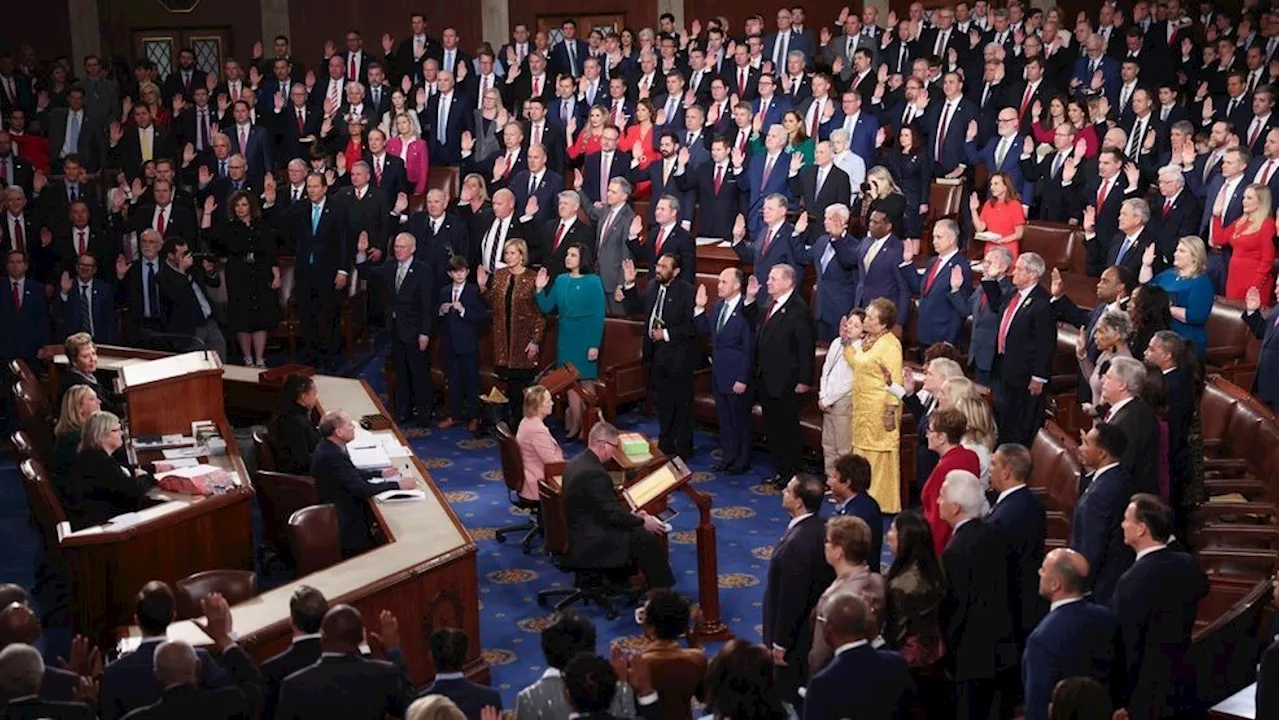A federal budget expert warns that the new Congress faces a crucial year to address government spending and warns of potential consequences if they fail to act.
The new Congress faces a pivotal year to rein in government spending, according to a federal budget expert with the Cato Institute. Romina Boccia, the director of budget and entitlement policy for the libertarian-leaning think tank, said there are massive tax cuts expiring at the end of the year that will take their toll on our federal deficit if they are simply extended without making cuts elsewhere.
The provisions stem from the 2017 Tax Cuts and Jobs Act, which Boccia said was a legacy achievement for Trump in his first term. “So, he has every interest to see those extended,” she said Thursday. “But if Congress simply extends them, it will add almost $5 trillion in deficits over the next 10 years, unless they do something to offset that deficit increase.” Boccia said Congress should tie any debt ceiling increase to a firm, enforceable commitment to spending cuts. And she said any extension of the 2017 tax cuts needs to be done in a deficit-neutral way. Federal debt held by the public, the debt borrowed from credit markets, is $29 trillion, or near 100% of the gross domestic product, a broad measure of the U.S. economy. By 2027, the Congressional Budget Office projects the national debt will reach its highest level ever, exceeding 106% of GDP, she said. “But that assumes we don't extend the tax cuts,” she said. “So, we'll get there much faster if we do extend the tax cuts without offsets.”“What that means is that our debt is already crowding out private investment, because the government is sucking up so much of the capital in the market,” Boccia said.“You have a limited pot of money available that can be lent out. And if the government takes a larger chunk of that, that leaves less for the private sector,” she said. “And so, when there's less capital available, that means that the capital that is available is more expensive. And interest is the price of that capital.” The Fiscal Responsibility Act of 2023, which suspended the debt limit until last week, also established binding discretionary spending caps for fiscal years 2024 and ’25.So, she said Congress should act to pass enforceable discretionary spending caps beyond this year. She said Republicans, who will control the White House and both chambers of Congress, are likely to favor spending on defense, border security and immigration enforcement.“The political compromise is most likely to be more spending for everybody,” Boccia said. “And so that's why spending caps can be helpful, because it can limit that damage and establish a baseline from which the parties then have to negotiate and prioritize.” Boccia said she also wants Congress to close loopholes that allow lawmakers to “pretend like they're staying within the spending limit.” One example that she said is increasingly abused is spending money categorized for emergencies on nonemergencies. Boccia is an advocate of a congressionally delegated fiscal commission with narrow authority to stabilize the debt by reforming the main drivers of spending growth, which are Medicare, Medicaid and Social Security., which will look for regulatory rollbacks, administrative reductions and cost savings primarily through executive actions. She said an independent fiscal commission could lead to meaningful spending cuts by shielding elected lawmakers from the political fallout. “Without political cover, they are going to make tweaks around the edges, maybe reform some welfare programs, etcetera. But they are not going to, in any big way, touch Medicare and Social Security,” she said. Medicare and Social Security alone are responsible for the entire long-term unfunded obligation of the U.S. government, she said. “I think health care should be the biggest agenda item,” Boccia said. “Medicare, Medicaid, those are the fastest growing budget categories. With Social Security, you have a natural leveling out. Social Security's getting bigger from 4.5% of GDP to a little over 6% of GDP. And then due to demographic changes, it's projected to level out at 6% of GDP. So, it's not economically unsustainable. It's just getting more expensive. Medicare and Medicaid are on an upward trajectory with no limit, with no end in sight.” Boccia said if Congress doesn’t make tough budget choices now, their hands might be forced down the line. And that’s likely to be wrapped in a fiscal crisis. “But then, we will have very constrained choices,” she said. “It'll be much more painful than it needs to be.
BUDGET CONGRESS SPENDING DEBT TAX CUTS FISCAL RESPONSIBILITY
United States Latest News, United States Headlines
Similar News:You can also read news stories similar to this one that we have collected from other news sources.
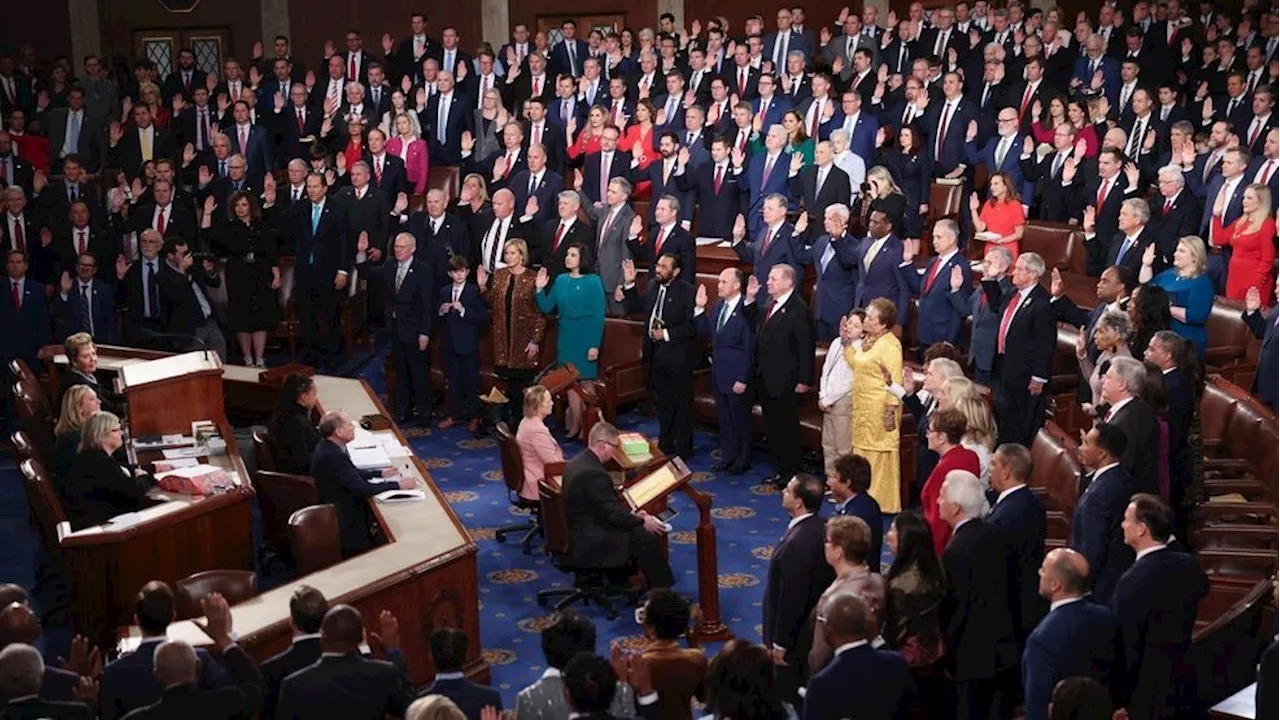 Congress Faces Pivotal Year to Rein in Spending, Expert WarnsA federal budget expert warns that the new Congress faces a critical year to address government spending, as missteps could lead to further inflation, high interest rates, and larger budget deficits. She emphasizes the need for spending cuts, tying any debt ceiling increase to enforceable commitments, and deficit-neutral extensions of the 2017 tax cuts.
Congress Faces Pivotal Year to Rein in Spending, Expert WarnsA federal budget expert warns that the new Congress faces a critical year to address government spending, as missteps could lead to further inflation, high interest rates, and larger budget deficits. She emphasizes the need for spending cuts, tying any debt ceiling increase to enforceable commitments, and deficit-neutral extensions of the 2017 tax cuts.
Read more »
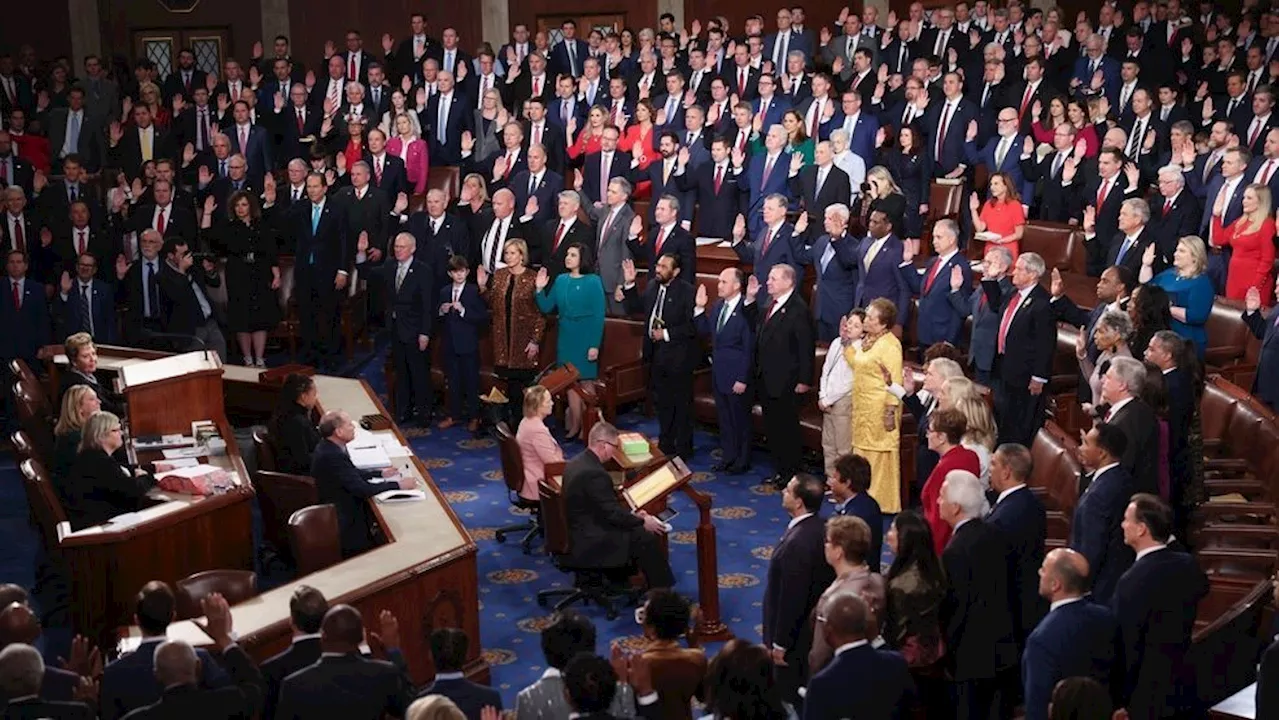 Congress Faces Pivotal Year to Curb Government Spending, Expert WarnsA federal budget expert at the Cato Institute warns that the new Congress faces a crucial year to control government spending. Romina Boccia highlights the risk of extending expiring tax cuts without offsetting spending increases, potentially leading to inflation, higher interest rates, and larger budget deficits. She urges Congress to link any debt ceiling increase to concrete spending cuts and to find deficit-neutral ways to extend the 2017 tax cuts.
Congress Faces Pivotal Year to Curb Government Spending, Expert WarnsA federal budget expert at the Cato Institute warns that the new Congress faces a crucial year to control government spending. Romina Boccia highlights the risk of extending expiring tax cuts without offsetting spending increases, potentially leading to inflation, higher interest rates, and larger budget deficits. She urges Congress to link any debt ceiling increase to concrete spending cuts and to find deficit-neutral ways to extend the 2017 tax cuts.
Read more »
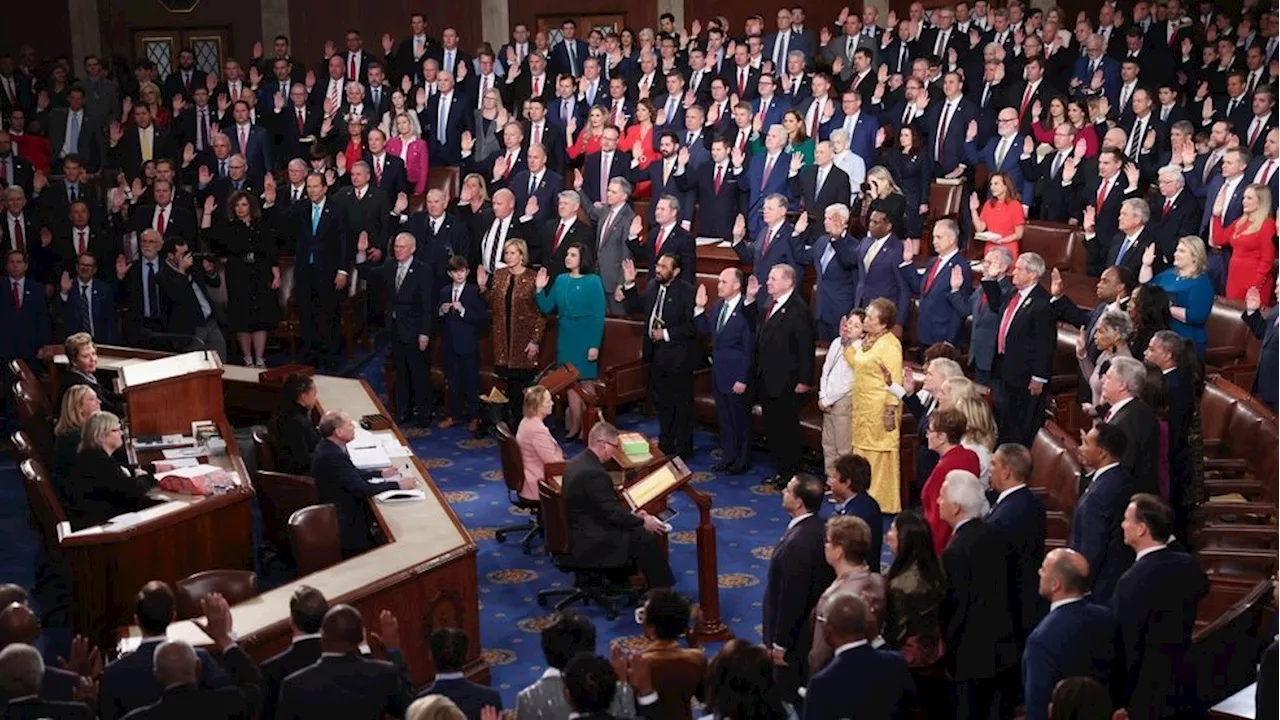 Congress Faces Pivotal Year to Curb Spending, Expert WarnsRomina Boccia, a budget expert at the Cato Institute, stresses the urgency for Congress to address government spending in the coming year. She warns that inaction, particularly on expiring tax cuts and the debt ceiling, could worsen inflation, interest rates, and federal budget deficits. Boccia advocates for tying debt ceiling increases to spending cuts and deficit-neutral tax extensions. She also calls for closing loopholes and implementing enforceable spending caps to prevent excessive government borrowing.
Congress Faces Pivotal Year to Curb Spending, Expert WarnsRomina Boccia, a budget expert at the Cato Institute, stresses the urgency for Congress to address government spending in the coming year. She warns that inaction, particularly on expiring tax cuts and the debt ceiling, could worsen inflation, interest rates, and federal budget deficits. Boccia advocates for tying debt ceiling increases to spending cuts and deficit-neutral tax extensions. She also calls for closing loopholes and implementing enforceable spending caps to prevent excessive government borrowing.
Read more »
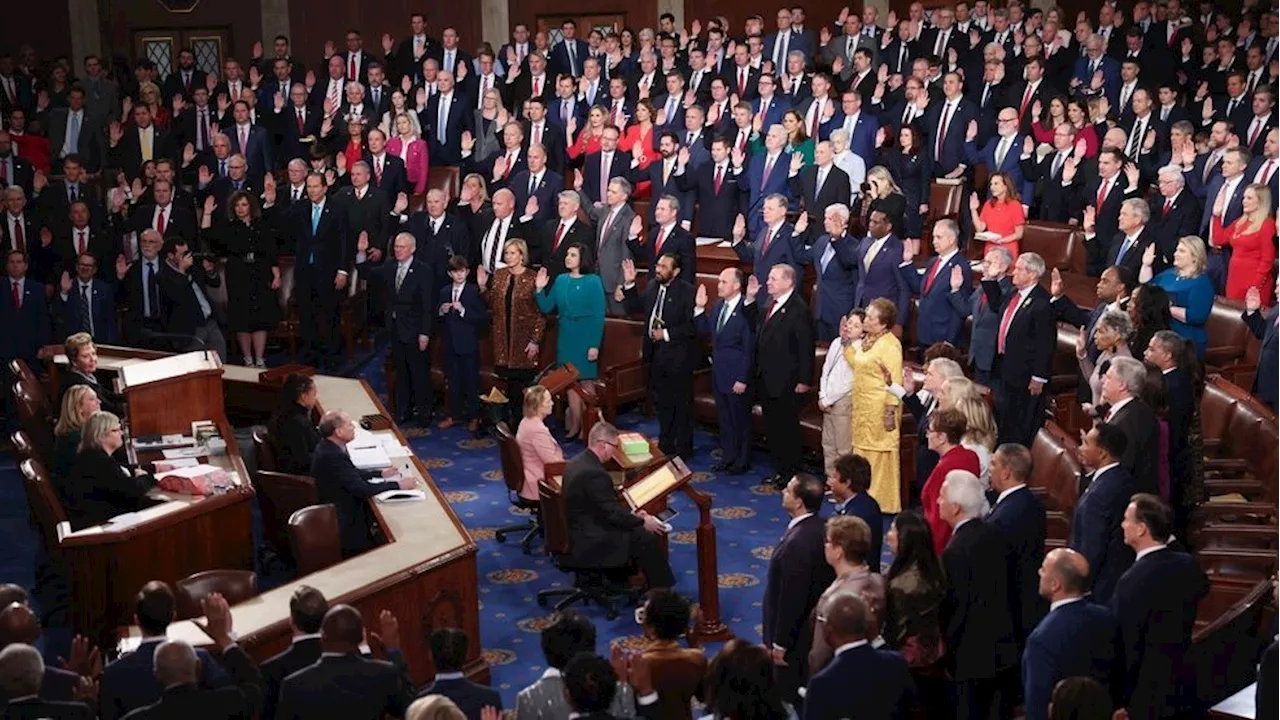 Congress Faces Pivotal Year to Curb Government SpendingA budget expert warns of severe consequences if the new Congress fails to rein in spending, including further inflation, high interest rates, and increased federal deficits.
Congress Faces Pivotal Year to Curb Government SpendingA budget expert warns of severe consequences if the new Congress fails to rein in spending, including further inflation, high interest rates, and increased federal deficits.
Read more »
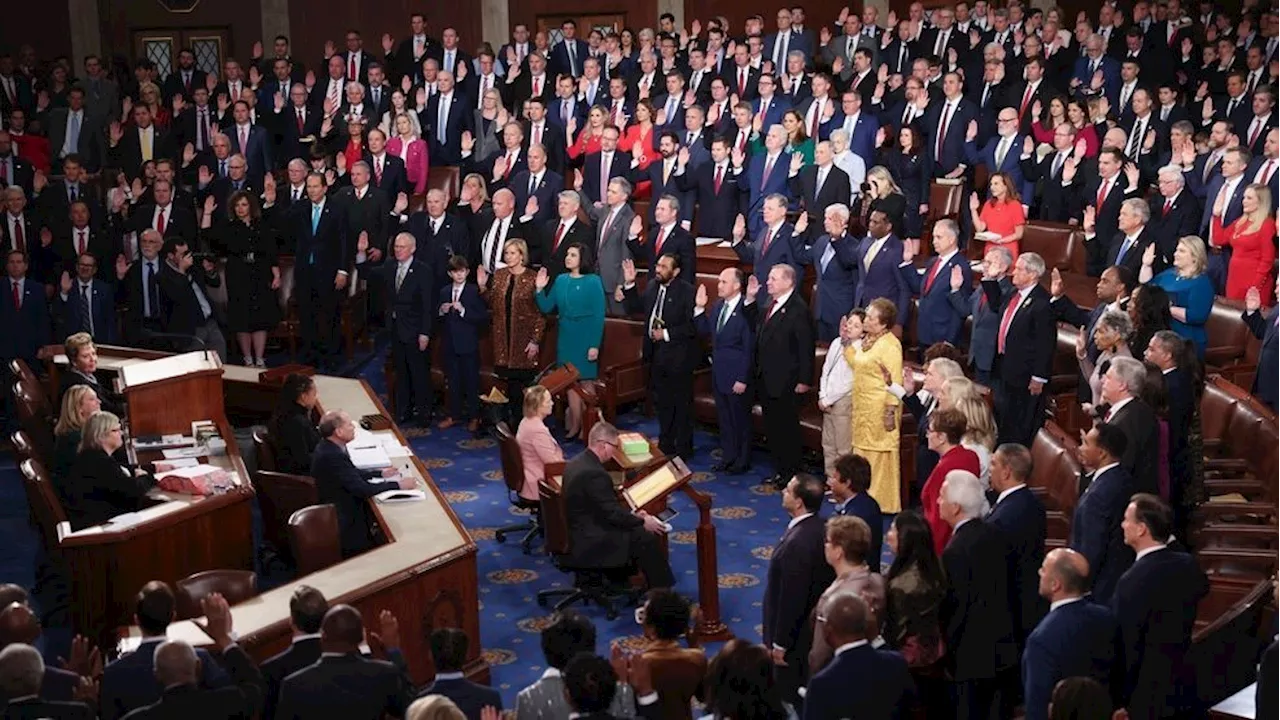 Congress Faces Pivotal Year on Budget ControlA federal budget expert warns that the new Congress faces a crucial year in addressing government spending and preventing further inflation and debt. She suggests several measures, including tying debt ceiling increases to spending cuts, enacting deficit-neutral tax extensions, and establishing enforceable spending caps.
Congress Faces Pivotal Year on Budget ControlA federal budget expert warns that the new Congress faces a crucial year in addressing government spending and preventing further inflation and debt. She suggests several measures, including tying debt ceiling increases to spending cuts, enacting deficit-neutral tax extensions, and establishing enforceable spending caps.
Read more »
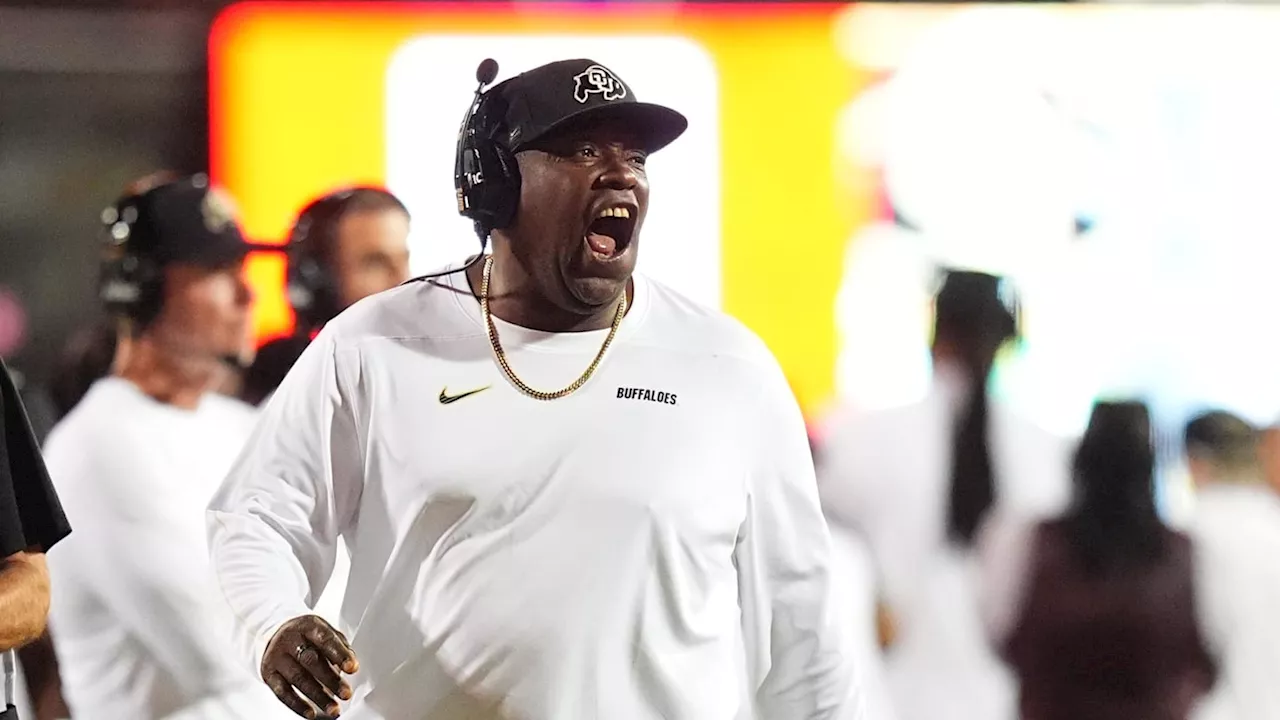 Deion Sanders Faces Pivotal Period at ColoradoDeion Sanders faces critical decisions about players, staff, and his own future as he leads the Colorado football team.
Deion Sanders Faces Pivotal Period at ColoradoDeion Sanders faces critical decisions about players, staff, and his own future as he leads the Colorado football team.
Read more »
